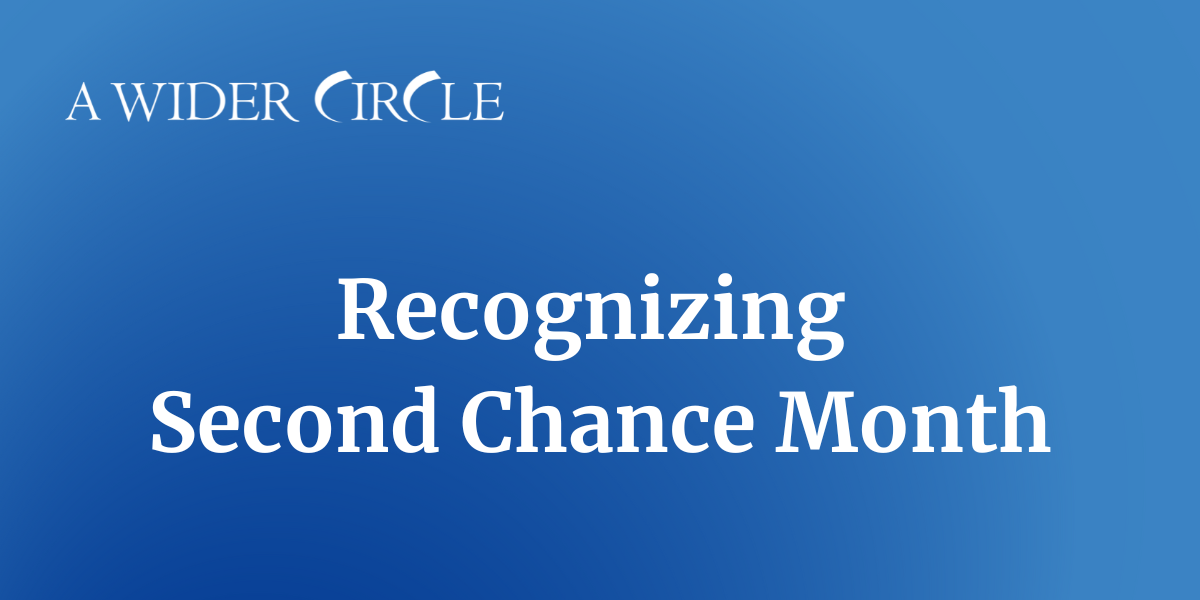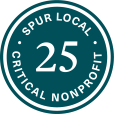
Editor’s note: Adam Albanese, Senior Program Advisor at AWC, recently shared the personal reflection below with our staff in recognition of Second Chance Month.
Since 2017, April has been deemed “Second Chance Month,” to recognize the importance of reintegrating justice system-affiliated individuals back into communities. This month of awareness was started by the Prison Fellowship, which states as their core belief “that a restorative approach to prisoners, former prisoners, and all those affected by crime and incarceration can make communities safer and healthier.”
In my work with A Wider Circle (and earlier in my career), I’ve had the opportunity to work with many individuals who had formerly been incarcerated. There is no way to speak generally of such a diverse group of individuals, so I will only say I am grateful to them all for sharing their perspectives and experiences. I learned a lot from those conversations.
At A Wider Circle, we often speak about the importance of respecting the inherent dignity of every person. For many, groups like this can really “test” our resolve to live fully in this way; to see beyond the projected labels of “criminal” or “felon,” beyond their circumstances and past contexts, to the actual human being right here and now.
The challenges these neighbors face in returning to the workforce are enormous, and they are provided almost no support or financial help after release. This is even more egregious, considering the work many have done in prison with very little or no compensation. A recent AP article, “Prisoners in the US are part of a hidden workforce,” connects the dots between those working in prison (without choice) and the “economic success” of major agricultural supply chains. “If they refuse to work, some can jeopardize their chances of parole or face punishment like being sent to solitary confinement. They also are often excluded from protections guaranteed to almost all other full-time workers, even when they are seriously injured or killed on the job.”
In terms of policy, this goes back to the 13th Amendment to the U.S. Constitution, which ended slavery but left open a back door:
“Neither slavery nor involuntary servitude, except as a punishment for crime whereof the party shall have been duly convicted, shall exist within the United States, or any place subject to their jurisdiction.”
For those who want to dive deeper into this connection, I strongly recommend reading Michelle Alexander’s “The New Jim Crow” or watching the Netflix documentary “13th” by Ava DuVernay.
With just a few hours left of Second Chance Month, I’d like to extend an invitation to consider a more expansive definition of “second chance” — instead of thinking of it only as a second chance for our neighbors returning from incarceration, let’s consider it “another chance” for all of us to become stronger through the act of reintegration, drawing us into more wholeness and unity.
Adam Albanese is A Wider Circle’s Senior Program Advisor. He also served as Director of our Career Support program from 2018-2023.




